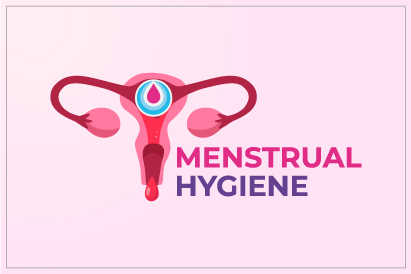
Raised:
£40 trillionGoal:
£500.00Girl Hygiene & Well Being
Girl Hygiene & Well-Being
The Menstrual Hygiene Challenge: Addressing “Period Poverty” and Its Impact on Safety, Hygiene, and Dignity.
The fear of being caught unprepared without menstrual products is something that terrifies most people. However, the harsh reality is that millions worldwide lack access to these products, making “period poverty” a grim norm. Period poverty is a type of poverty that strips individuals of their ability to maintain hygiene during menstruation, often leaving them unable to engage in routine daily activities without shame, embarrassment, or discrimination.
Period Poverty
A Silent Crisis Affecting Millions
Approximately 500 million people worldwide endure period poverty due to a lack of access to sanitary products. Yet, the absence of physical products is just one facet of period poverty. Many among these 500 million individuals also lack access to adequate hygiene facilities, denying them the space, privacy, and resources needed for proper hygiene.
It may come as a surprise to many that period poverty is not an isolated issue but rather a widespread global concern. A survey reveals that over 59% of women categorized as “low income” worldwide could not afford menstrual products within the past year. Shockingly, nearly half of those facing period poverty reported having to choose between buying food and purchasing menstrual products.
In a 2021 study, more than 14% of college-aged menstruating students reported experiencing period poverty within the past year, with an additional 10% facing it monthly. Adding complexity to the issue, 28 states currently impose sales tax on menstrual products. However, there is a glimmer of hope as some regions, including Louisiana and Vermont, have passed laws exempting these products from sales tax. Globally, Scotland recently became the first country to offer period products for free. Nonetheless, there is much work ahead in addressing the financial and cultural obstacles affecting those suffering from a lack of period hygiene.
Beyond Poverty
The Stigma of Menstruation
While period poverty often stems from a lack of access to hygienic products, cultural and societal beliefs also contribute to the problem. Many cultures worldwide regard menstruation as a taboo topic, associating menstruating individuals with impurity. Consequently, those menstruating are compelled to conceal their condition, sometimes even being forbidden from leaving their homes to attend school, work, sports, shopping, or social gatherings. In certain regions, menstruating individuals are prohibited from entering their own kitchens, driven by misguided cleanliness beliefs. Stigma and inadequate access to hygiene resources cause 95% of school-aged girls in Ghana to miss school during their periods.
Subtle Discrimination
Even in cultures without overt discrimination against menstruating individuals, access to hygienic conditions during menstruation remains challenging. Many workplaces worldwide lack sufficient facilities for menstrual hygiene, and some workplaces have no toilets at all. This deficiency results in a collective loss of millions of work hours due to female employee absences. In Bangladesh, for instance, 73% of women reported missing an average of six workdays per month until efforts to distribute sanitary pads helped reduce absenteeism.
The Health Toll of Inadequate Access to Menstrual Products
The significance of hygiene during menstruation often takes a back seat when discussing the inconveniences of unaffordable or inaccessible sanitary products. However, access to safe, clean menstrual products is not a luxury; it is a necessity. Proper washing facilities during menstruation are essential because blood provides an ideal environment for bacteria to thrive. The inability to maintain proper hygiene can disrupt pH balance, leading to yeast infections and bacterial vaginosis. Women without access to hygienic facilities face health risks related to the reproductive system and urinary tract.
In their desperation, women who lack access to menstrual products sometimes resort to unhygienic alternatives. A survey by the United Nations Children’s Fund (UNICEF) revealed that menstruators in Kenya often use items like chicken feathers, discarded rags, mud, and newspapers when safe, clean products are unavailable. Even women with access to pads and tampons may face infection risks by using them beyond their recommended duration due to period poverty.
Addressing Period Poverty
What Can Be Done?
There is no easy solution to dismantling deeply ingrained biases and misconceptions surrounding menstruation worldwide. The first step is to raise awareness of the issue. Those who wish to make a difference can express their support for sales-tax exemptions on sanitary products to lawmakers. However, combatting the global problem of period poverty requires a combination of “material” assistance in the form of sanitary products and educational campaigns stressing the importance of proper menstrual hygiene.
References
– https://universe.byu.edu/2021/06/25/period-poverty-affects-millions-of-women-girls-globally/
– https://www.reuters.com/article/us-health-menstruation-usa/even-in-the-u-s-poor-womenoften-cant-afford-tampons-pads-idUSKCN1P42TX
– https://chhs.sitemasonry.gmu.edu/news/2021-02/1-10-college-women-experience-period-poverty-more-likely-experience-depression
– https://19thnews.org/2021/07/two-states-have-killed-the-tampon-tax-but-advocates-wantmore/
– https://www.bbc.com/news/uk-scotland-scotland-politics-51629880
– https://www.globalcitizen.org/en/content/ghana-river-god-girls-period-menstruation-school/
– https://www.theguardian.com/commentisfree/2014/aug/11/free-tampons-cost-feminine-hygiene-products
– https://assets.publishing.service.gov.uk/media/5c6e87b8ed915d4a32cf063a/period.pdf



